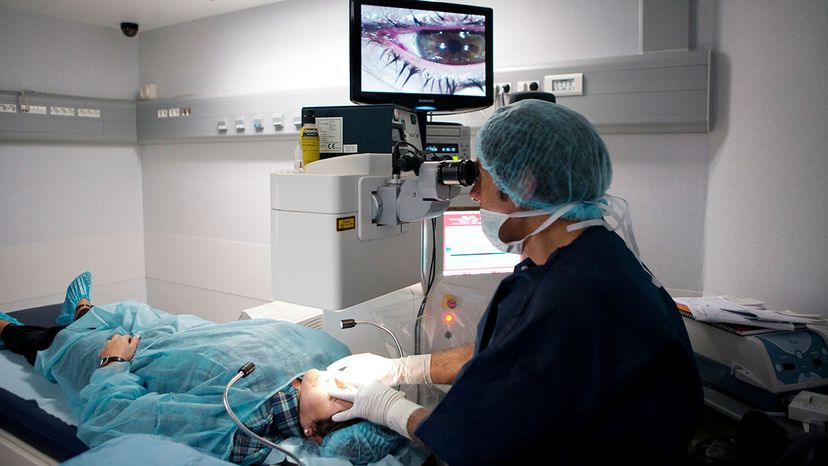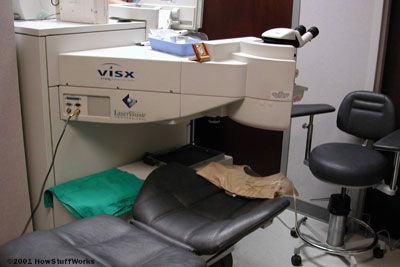
If you've ever been saddled with eyeglasses so thick that the lenses look like Coke bottles glasses, you've probably considered LASIK surgery (laser-assisted in situ keratomileusis, to give it its full name), a fast, safe procedure that began proliferating throughout the United States in the 1990s. In just a few minutes, LASIK can correct eye problems like myopia (nearsightedness — you can only see up close), hyperopia (farsightedness — you can only see far away) and astigmatism (blurred vision). But some patients notice that months or years later their vision seems to worsen again. So how long does LASIK really last?
First, a little on how it works: In a LASIK procedure, a surgeon uses a high-precision blade called a microkeratome or an ultra-fast femtosecond laser to slice a corneal flap into the eye. Then, she lifts the flap to expose the corneal tissue, while an excimer laser reshapes the cornea by removing unwanted tissue. The flap settles back into place and heals within a few weeks. In the meantime, the patient immediately enjoys improved vision.
Advertisement
"The great thing about LASIK is that the results are permanent in the great majority of cases," emails Eric Donnenfeld, M.D., an ophthalmologist, who has performed many eye surgeries, including LASIK. "Assuming a stable prescription, patients can expect their vision correction to last until age-related visual changes occur – typically after the age of 45 or 50, when most people will need reading glasses." But, he said, medical conditions associated with aging, such as cataracts, may change vision many years after LASIK.
In a minority of cases, changes within the patient's eyes – which would likely occur with or without LASIK – cause a reduction in visual acuity (sharpness of vision). This is called myopic regression. Those changes might happen within a year of the operation, or decades later. A quick touch-up procedure (called LASIK enhancement) often restores visual acuity.
There aren't a lot of studies on myopic regression. Within a year or two of LASIK surgery, maybe 2 percent of patients need an enhancement procedure, according to the American Refractive Surgery Council. After about a decade, perhaps 10 percent of patients will need an enhancement procedure. Eric Donnenfeld notes that "patients with high refractive errors (very thick glasses) have a greater chance of needing an enhancement."
According to Dr. Chris Blanton, medical monitor and consultant with Johnson & Johnson Vision, if your surgeon is using an advanced procedure called custom LASIK or wavefront LASIK, there's a 98 percent chance that you'll need just one procedure, and that's it. Wavefront technology creates a 3-D image of the eye to use a guide in doing the LASIK surgery.
Touch-ups aren't risk-free. "Like any surgical procedure there are risks, for example abnormal healing or infection," says Blanton by email. But only a tiny number of patients encounter complications.
The eyes of younger patients tend to change more over time, and they're more likely to notice a bit of blurriness as they age, even if they've had LASIK. Older patients' eyes, and the surgical results, are often more stable, with the exception of presbyopia, the decline in close-up vision that naturally occurs with age and forces many middle-aged folks to wear bifocal glasses. Note that presbyopia comes as a result of changes to the lens of the eye, not to the cornea, which is what LASIK operates on.
Doctors say it's not realistic to expect your laser-focused eyes to remain perfect for the rest of your life. After all, every part of the human body ages and changes, and the eyes are no exception. If you suffer regression after LASIK, and you don't want to undergo (or pay for) a touch-up procedure, you're not alone. Many people opt to wear prescription glasses for driving or reading. And of course, whether you've had LASIK or not, a yearly eye exam is a good idea to keep your health and your vision at its best.
Advertisement

